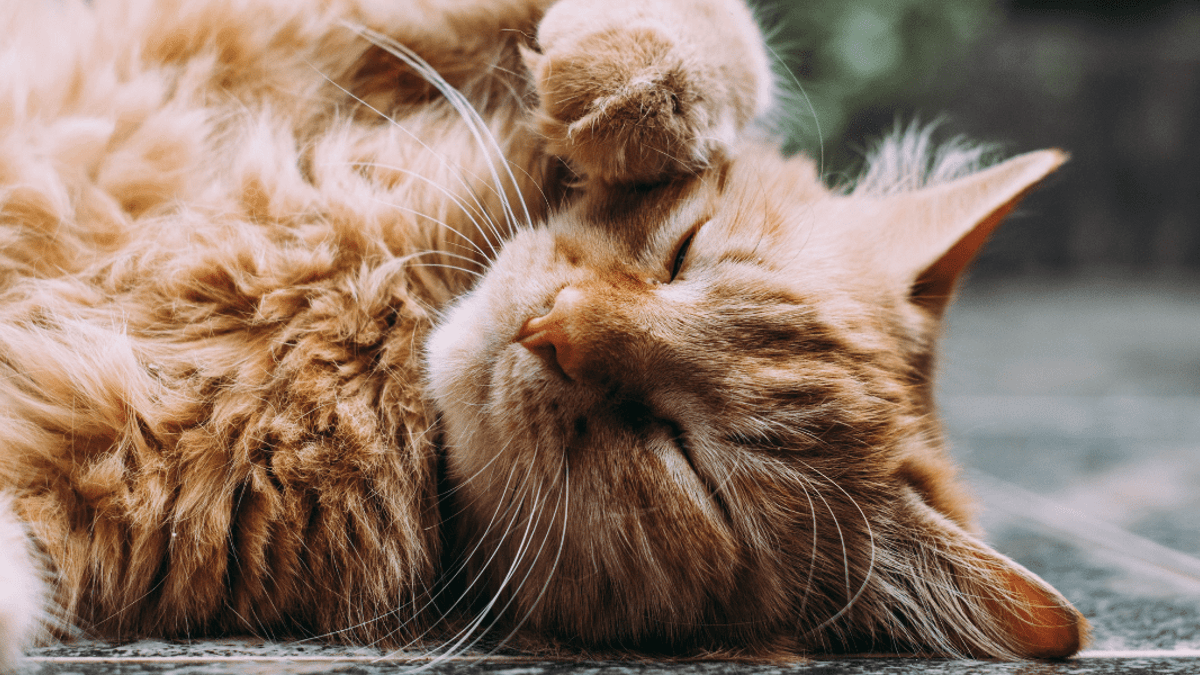Our cat’s organism works like a perfect machine: the younger it is, the more efficient it is, and as an elderly cat it is easy for our cat to suffer from urinary tract disorders.
However, there are pathological conditions that can occur even at an early age and that do not always have a precise cause:cat hematuria is one of them.
Let’s see what it is and what are the main causes of blood in the cat’s urine.
The cat’s hematuria
Cat hematuria is a condition in which there is the presence of blood in the urine. You will notice this from the pink color of Micio’s pee and sometimes from his difficulty in urinating correctly.
It cannot be a physiological condition because, unlike the dog, the “menstrual” cycle of cats does not manifest itself with blood loss, so we cannot get confused.
Cat hematuria is not a disease, but a symptom of a problem that can have many causes, from a trivial inflammation of the urinary tract to something more serious. If your feline friend urinates blood, you should contact a veterinarian immediately.
Feline idiopathic cystitis – fic
The feline idiopathic cystitis it is the most common inflammatory syndrome (55%) of the lower urinary tract in cats, which can occur without or with traces of blood in the urine depending on the severity and concomitant causes.
Idiopathic cystitis differs from other infections affecting this anatomical district since its origin is unknown. Among the possible causes are hypothesized: stress, genetic predisposition or neurological inflammation.
Familial cat hematuria
Normally the manifestations of hematuria are more frequent when the cat is elderly and is more prone to developing urinary tract diseases, such as kidney failure.
But if your young cat urinates blood, it could also be idiopathic hematuria, a hereditary condition characterized by the thinning of a membrane that makes up the nephron, the functional unit by which the kidneys can do their job. But this is not a common condition like cystitis.
Causes of hematuria
Idiopathic or not, as we have seen, cystitis is the most frequent cause of hematuria of the cat. This inflammation or irritation of the urinary tract is very often due to the presence of bacteria, however cystitis can also be the symptom of a systemic problem, which therefore involves the whole organism.
Here are the possible ones cause of hematuria in cats:
- Uterine infection (pyometra);
- Bladder or vaginal infections (cystitis and vaginitis);
- Poisoning;
- Tumors;
- Kidney or bladder stones – struvite (in 20% of cats under 10);
- Polycystic kidney;
- Trauma to the urinary tract or abdomen;
- Chronic renal failure.
Symptoms of hematuria
As we have seen, the cat’s hematuria is itself a symptom of a disorder, however it can be accompanied by some clinical signs that should be observed.
In cats there can bepainless hematuria manifest, but very often Micio suffers during urination and therefore it is possible to observe him to grasp different positions from the usual: the arched back and the tense muscles represent an analgesic (painful) position typical of the feline.
Here are some additional symptoms to look out for
If the cat’s hematuria is accompanied by one or more of the symptoms indicated, do not waste time and bring your 4-legged friend for a medical check-up.
Diagnosis
Since this is a symptom, it is important that the vet can have all the information about the cat’s health to formulate a correct medical history and understand the nature of the cat’s hematuria.
The standard checks that your doctor will suggest mainly consist of:
- Blood biochemical profile, including complete blood count, and creatinine and coagulation profile;
- Urinalysis with possible antibiogram for the identification of the bacterial strain;
Other in-depth diagnostic tests may concern:
- Rx addome;
- Abdomen and urinary tract ultrasound.
These tests will be recommended especially if Micio is elderly, so as to be able to detect the presence of any tumors, thus being able to act preventively.
Treatment
Treatment varies according to the cause: if the antibiotic for cats can be used to resolve an infection, the same cannot be said for the presence of urinary disorders due to another nature, which require surgery (e.g. stones kidney).
Diet
Do not forget that a healthy and balanced diet can make a difference in the health of the cat, even more if it suffers from problems with the urinary tract: it is no coincidence that many wet or dry feline diets are designed precisely to avoid kidney overload.
Even if finding traces of blood in the urine can be frightening, the important thing is to act promptly and not rely on DIY, but ask your veterinarian for advice in order to act in time on the causes of the insult without letting the symptom get worse!

